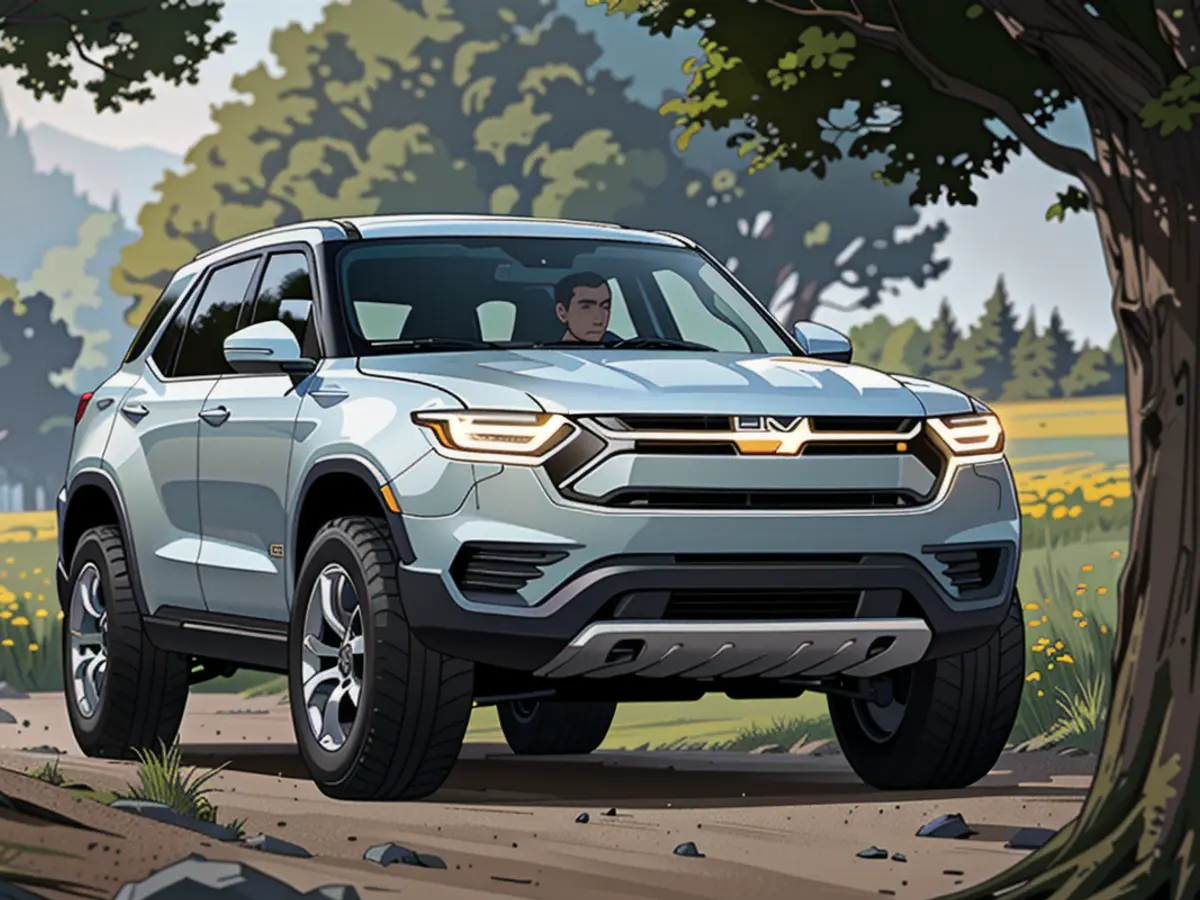The significant $5.8 billion agreement between Rivian and Volkswagen showcases an exceptionally optimistic outlook.
Electric vehicle (EV) manufacturer Rivian (RIVN) announced on Tuesday that it secured a significant deal with massive automaker Volkswagen (-0.76%). Volkswagen will pour billions into the California-based upstart. Although this deal will affect Rivian shareholders, it's generally good news for the company.
The Volkswagen investment allows Rivian to fund the launch of its smaller, more popular R2 and R3 models. Additionally, it opens up a promising new market for Rivian's technology.
The Rivian-Volkswagen partnership
In essence, Rivian and Volkswagen have formed a business partnership. They will adapt Rivian's technology for some of Volkswagen's upcoming EVs.
Rivian's technology, known as a "zonal" architecture, connects different parts of an EV through a network that supports various vehicle types and price ranges. Rivian has been developing this for its midsize R2 SUV, and plans to use it in other vehicles. Now, Volkswagen will utilize it as well – initially in premium models from its Porsche and Audi brands, and then in more affordable Volkswagen EVs.
Although that includes shared hardware and software, Volkswagen products will not resemble Rivians in appearance or driving experience. Rivian's architecture can be customized to create various types of vehicles – for instance, a Porsche sports car built on the architecture will differ significantly from one of Rivian's off-roaders. The shared technology will enrich the consumer experience, without being a fundamental part of it.
The deal does not include Rivian-exclusive electric motors or autonomous-vehicle technology. These will remain exclusive to Rivian.
When and how Rivian gets up to $5.8 billion from Volkswagen
Rivian CFO Claire McDonough explained that the deal is worth "up to $5.8 billion", a total that includes a possible $1 billion loan. Here's how the investments will unfold:
- Rivian received $1 billion from Volkswagen upon the deal's announcement in June 2024. This was in exchange for a convertible note that converted into Rivian stock in December.
- Volkswagen will pay an additional $1.32 billion this week, as part of the deal's closing. This payment covers the intellectual property Volkswagen is licensing from Rivian, as well as a 50% stake in the joint venture.
- Volkswagen will invest another $1 billion no earlier than June 2025, once Rivian achieves two consecutive quarters of gross profit (or two non-consecutive quarters of positive gross profit of at least $50 million). Rivian has five years to accomplish this, but anticipates achieving it by 2025.
- Another $1 billion is expected in 2026, once the joint venture's technology is successfully tested in a Volkswagen vehicle during winter conditions.
- Finally, Volkswagen will invest another $460 million once the first salable VW based on the joint venture's technology is produced, or by January 2028, whichever takes place first.
Rivian also has the option to secure a $1 billion loan from Volkswagen in October 2026. The loan would be secured by Rivian's stake in the joint venture. Rivian would have 10 years to repay, but would not have to make any principal payments until 2029.
Why the Volkswagen deal is so promising for Rivian
Although Volkswagen's investment in Rivian will affect existing shareholders, I do not see it as a major problem. I believe there are at least three reasons why this is positive for Rivian:
- The deal safeguards Rivian from potential disruptions in the U.S. market for electric vehicles. This is a genuine concern considering Donald Trump's return to office – it's possible that incentives currently given to EV buyers in the U.S. will be reduced or eliminated.
- Assuming the milestones are met (which they are), the deal guarantees Rivian will receive annual cash infusions no matter how the stock performs, and no matter what happens under the Trump administration.
- The deal opens up the possibility of marketing the technology beyond Volkswagen. If the zonal architecture works well in Volkswagen's EVs, other large worldwide automakers might consider licensing the system from the joint venture.
Although Rivian had $8.1 billion in total liquidity as of September 30, there have been concerns about Rivian's high burn rate. The cash Volkswagen will invest under this deal increases the likelihood that Rivian will make it to sustainable scale, thereby reducing the risk of holding the stock over the next few years.
The investment from Volkswagen allows Rivian to utilize its technology in Volkswagen's upcoming electric vehicles, which could potentially expand its market reach. With Volkswagen's investment, Rivian can further fund the development and production of its smaller models, the R2 and R3, increasing its product offerings.







